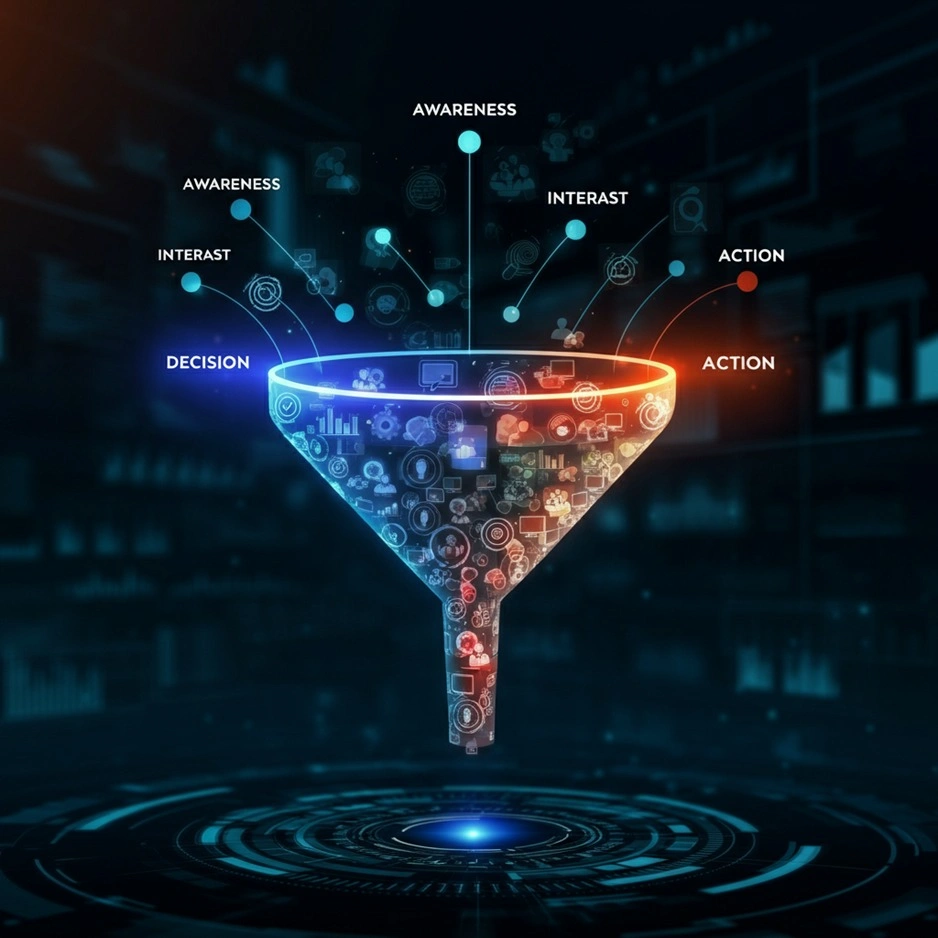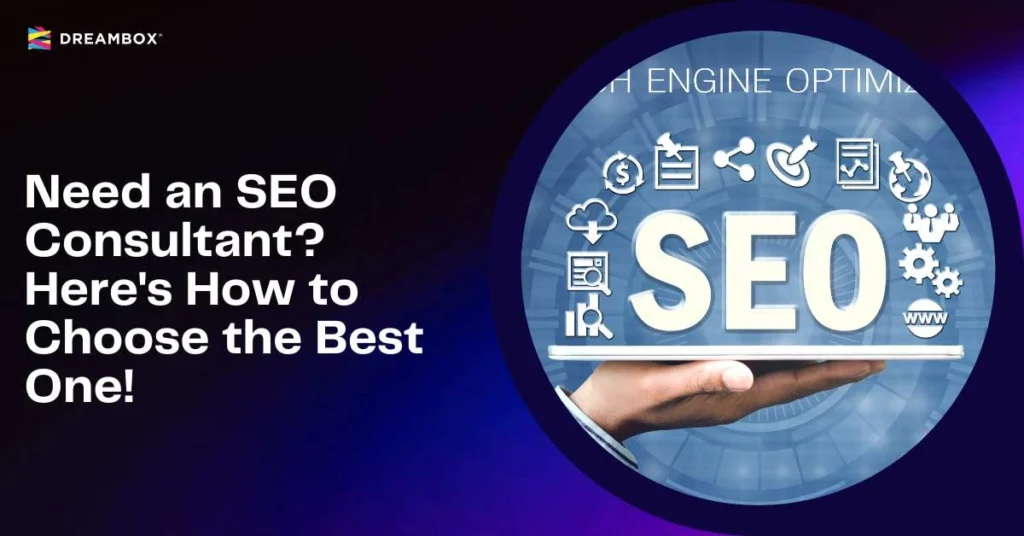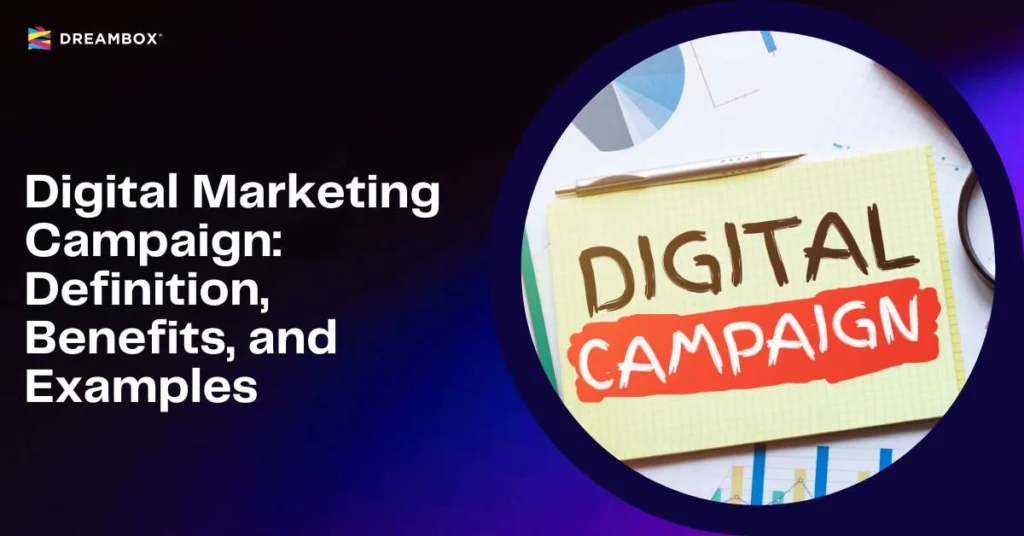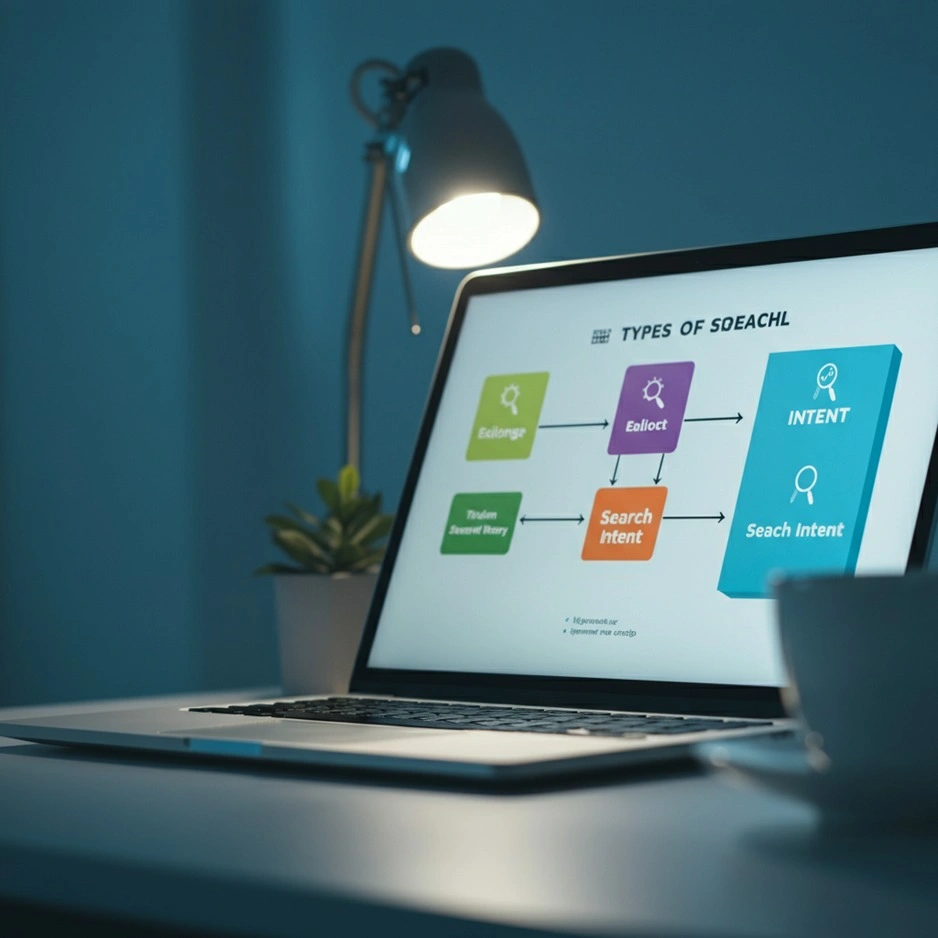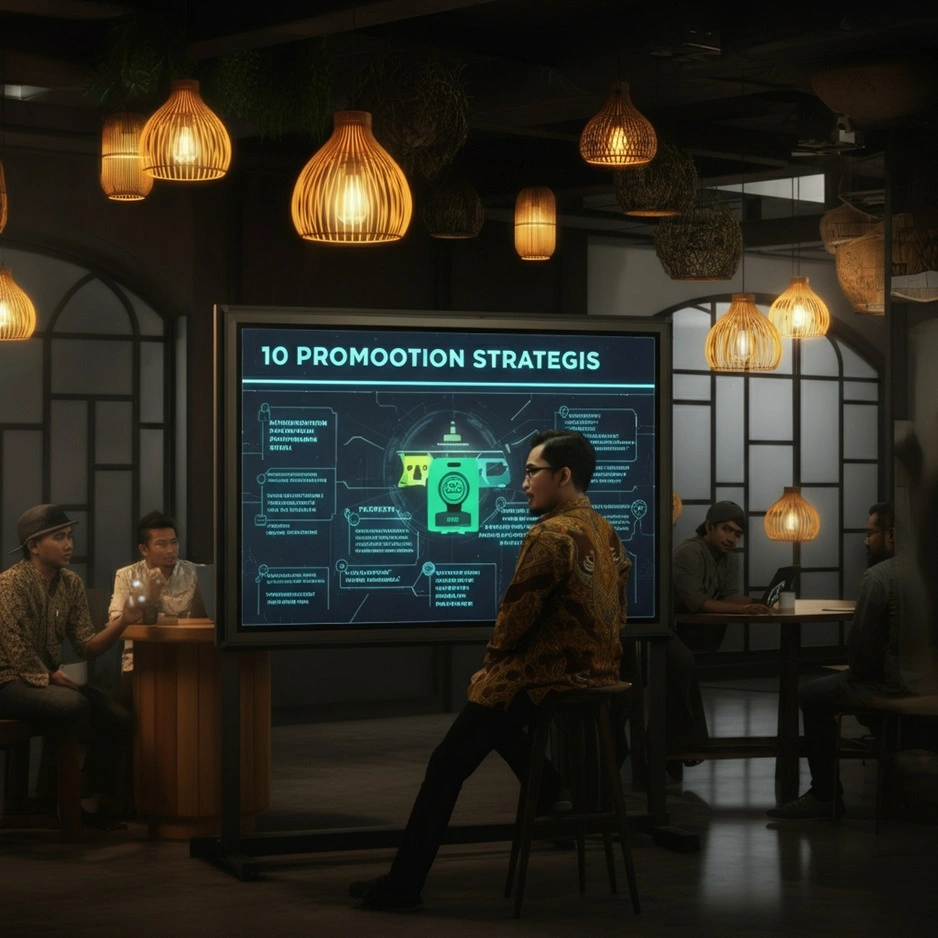Did you know that understanding marketing funnels can be the key to success in the world of digital marketing?
In today’s digital world, a structured marketing strategy is essential, and the marketing funnel is one of the most effective tools for understanding your customer’s journey.
In this article, we will explore what a marketing funnel is, provide examples, and discuss strategies you can implement to improve your business performance.
What is a Marketing Funnel?
A marketing funnel is a model that describes the customer journey, from the initial stage when someone first becomes aware of your business to the final stage when they make a purchase or even become a loyal customer.
The concept is called a “funnel” because the number of prospects moving forward at each journey stage decreases. Not everyone who hears about your business will become a customer.
Schedule a free 30-minute branding consultation session with our experts.
Why is Funnel Marketing Important?
- Understanding consumer behavior: Helps businesses identify the stages of the customer journey.
- Marketing efficiency: Focuses on the optimal strategy for each funnel stage.
- Increasing conversions: Ensures that more leads progress to the final stage.
Understanding the Stages of the Marketing Funnel
There are four main stages of the marketing funnel:
- Awareness:
This stage is when customers become familiar with your product or service.- Online example: A social media campaign to introduce your brand.
- Offline example: Billboard advertising in strategic locations.
- Interest:
At this stage, customers begin to show interest and seek more information.- Online example: A potential customer reads a blog post on your website.
- Offline example: Speaking with a salesperson at an event.
- Decision:
The customer is close to making a purchase decision but may still consider options.- Online example: Adding your product to the shopping cart or reading product reviews.
- Offline example: Trying a product demo in a store.
- Action:
The funnel’s ultimate goal is the stage where the customer finally makes a purchase decision.- Online example: Purchasing e-commerce.
- Offline example: Paying for the product at checkout.
The Role of Content at Each Stage of the Funnel
Creating relevant content at each funnel stage is an important part of an effective digital marketing strategy.
- Awareness: Focus on educational content such as blogs, infographics, and videos to introduce the brand.
- Interest: Use email marketing, e-books, or webinars to address prospects’ needs and provide value.
- Decision: To convince prospects, provide customer testimonials, product reviews, or guarantees.
- Action: Offer incentives such as discounts or free shipping to encourage immediate action.
Successful Marketing Funnel Case Studies
- Netflix: Netflix uses a data-driven marketing funnel by offering a free trial at the “decision” stage, making it easier for prospects to try their services risk-free.
- Tokopedia: Through massive marketplace campaigns on social media (awareness) to in-app reminders (action), Tokopedia successfully increased its active users.
Strategies to Optimize the Marketing Funnel
- Personalize content: Use data to deliver experiences tailored to each customer’s needs.
- A/B testing: Test different marketing elements, such as headlines or CTAs, to find the most effective ones.
- Retargeting ads: Don’t let leads that have reached the interest or decision stage slip away—use retargeting ads to remind them.
- Marketing automation: Use tools like email autoresponders to maintain relationships with prospects at every stage of the funnel.
The Future of the Marketing Funnel
Technological developments and changes in consumer behavior will continue to reshape the marketing funnel. Here are the trends to watch:
- AI & Machine Learning: Use AI to predict customer needs early in the journey.
- Omnichannel Marketing: Ensure all your marketing channels are seamlessly connected.
- Real-Time Interactivity: Chatbots and live streaming are becoming essential tools to capture consumer interest in the moment.
Success Begins with a Structured Funnel
As an entrepreneur, digital marketer, or small business owner, understanding and optimizing your marketing funnel is an important step that cannot be overlooked. With the right strategy, you can improve marketing efficiency, strengthen customer relationships, and increase conversions.
Start by understanding your customers’ stages and creating relevant content for each stage of their journey. If you feel overwhelmed and need guidance, use available tools and resources to perfect your marketing funnel strategy.
Dreambox offers services that can be tailored to your business needs, such as branding strategy. Contact us and get the right marketing and branding strategy for your business!

